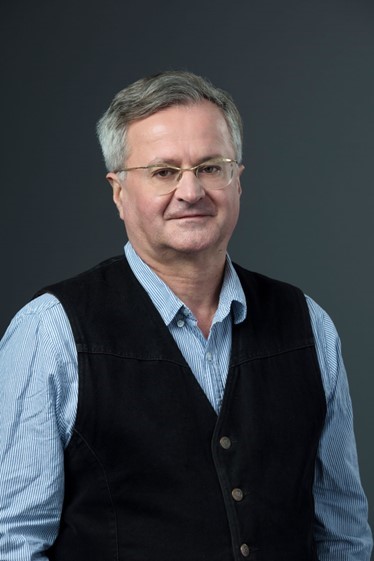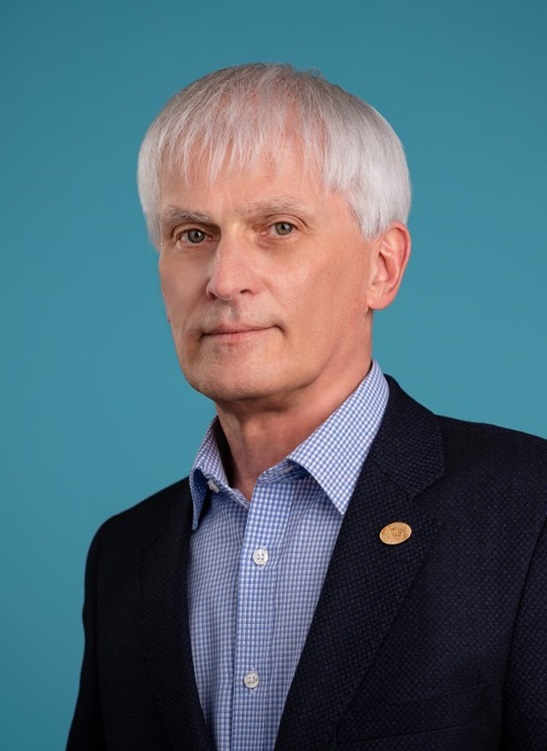News feed
Shaping the future through a joint workshop
2023. 04. 28.Interview with István Szakadát and Gábor Magyar about the work of the Digitalisation, Artificial Intelligence and Data Era workshop, which is part of the MNB-BME cooperation.
The Digitalisation, Artificial Intelligence and Data Era workshop, launched in 2019, aims to explore the economic and social impact of new technologies, the links between digital transformation and economic competition, and to identify the opportunities provided for the financial world. The research topics of the workshop include areas that are increasingly shaping the digital development of the financial world, such as FinTech or the central bank digital currency (CBDC), as well as technologies that are at the forefront of development, such as blockchain or even artificial intelligence. We talked to István Szakadát, Associate Professor of the Department of Sociology and Communication at the Faculty of Economics and Social Sciences and Gábor Magyar, Associate Professor of the Department of Telecommunications and Media Informatics at the Faculty of Electrical Engineering and Informatics, researchers of the Digi workshop, about the experiences gained so far, the work in progress and future plans.
How did the Digi Workshop project with the MNB start?

István Szakadát: György Matolcsy, Governor of the National Bank of Hungary, gave a lecture at BME on 8 December 2018, followed by an informal discussion, where the idea for collaboration in an increasingly digitalised world was raised.
Gábor Magyar: When we started the Digi workshop, we received a very strong and determined partner, the Digitalisation Directorate of the Hungarian National Bank (MNB), and we understood each other perfectly from the very first moment.
István Szakadát: In one of the first meetings, a colleague from MNB raised the issue of preserving the essence of banking, trust, in a world that is rapidly becoming digital and almost completely devoid of human contact. The angle of approaching this issue was fascinating in itself, since it projected a clear idea, free of tunnel vision and full of sensitivity. Banking is all about trust, and together we are now looking at how it can remain as important a player of the trust industry in the future as it has been in the past.
How were the topics for research and cooperation selected?
Gábor Magyar: We raised the topics, we suggested ideas first. Naturally, these ideas have been transformed significantly during our interactions. We had a lot of face-to-face meetings, where both sides expressed their views.
István Szakadát: Our cooperation agreement is for three years, but the work plan is adopted annually. We work on the ideas together, and after two or three months of intensive work, the material is presented to the Steering Committee, which makes the decisions. This year's plan was adopted last year. Successful projects are carried forward to the next year, while we remain open to new ideas.
The MNB has identified as an important educational objective of the workshop to raise the financial awareness of BME students, especially engineering students, and to introduce them to new financial technologies in addition to traditional knowledge.
Gábor Magyar: The results of the workshop are incorporated by the academic staff into their courses. It has always been like this, we are involved in solving real problems, and we pass on what we learn to our students. It may come as a surprise, but it was their idea to have a separate subject on Fintech at our university. This has already been implemented in the form of the FinTech Foundations. The subject is taught in cooperation between BME and MNB.
How does the workshop operate?
Gábor Magyar: There is no designated physical space for the workshop, we have status meetings on a weekly basis, we visit the MNB every two weeks or every month, and we usually meet our external partners there. We like face-to-face meetings, and fortunately both sides prefer this, which was sorely missed during COVID. Our collaboration can be much more intensive when working on topical development issues. The core team is made up of researchers and lecturers from 3 BME departments and the students who work with them. Student participation is also supported by the bank, which is why 4-6 students get involved each term. This intensive, workshop-like contact has worked very well for us.
István Szakadát: The MNB and the BME are both large institutions, so within the current frameworks, new cooperation opportunities may develop alongside existing projects (e.g. water management). We are constantly working to make our joint research as effective as possible, either by redesigning it or by extending a research project. The cooperation between the MNB's Digitalisation Directorate and the Faculty of Electrical Engineering and Informatics (VIK) could be an attractive example for others.
What is the added value of the MNB’s involvement, what new opportunities have opened up within the framework of the workshop?

Gábor Magyar: Together with the bank, we can work with partners on projects that would otherwise be more difficult to access. Of course, their financial support is also important, but I am particularly impressed by their proactive approach towards the digital switchover. In large international commercial banks, it is always the parent company that makes the decisions on technology development, and in a profitable sector like banking, this is not always a quick process, even though new solutions from emerging Fintech companies are spreading at lightning speed. The MNB’s foresight is extremely useful in this respect. If we don’t act in time, we will have trouble with the new generation of challenges. The MNB has taken notice and has started to work on its own regulatory activities, for example in the area of data protection, which is becoming more and more worrying as technology develops.
What projects have been implemented in the last 4 years?
Gábor Magyar: Fortunately, it would be difficult to summarise the achievements of the last period of almost 4 years in such a short space, so I would like to highlight just a few of the most important developments.
One of these is our study Digital Footprintsin the Data Age, which answers a number of topical questions about the digital footprints we leave in our everyday, public online activities. As the data era is expanding, more and more data on the activities and characteristics of individuals and groups are being collected by various institutions, and the large-scale use of these data at institutional and corporate levels also provides opportunities for data-driven decision-making and management (including automation and autonomous solutions). The transformation of value chains will have an even bigger, overarching impact. In our study entitled Data analytics, artificial intelligence and ethics in finance we focused on the role of data analytics, machine learning and artificial intelligence, which has grown significantly in the last decade in the context of exploding data volumes. New methods and practices are significantly redefining not only the world of tech companies, but also the way traditional companies, public actors and individuals operate. The research summarised this change through a state-of-the-art analysis of data analytics and artificial intelligence, with an overview of the ethical issues arising from the new opportunities.
The area of Central Bank Digital Currency (CBDC) – blockchain technology in finance has also developed into a particularly serious topic. Central bank digital currency means that the central bank issues digital money directly, without the need for an account at a commercial bank, just as we can have cash on us without a bank account. Key topics within this include the research and prototyping of blockchain-based central bank digital currency systems, the research and implementation of smart contracts, as well as the review of performance, scalability and robustness.
In addition to the above, we have been working - and continue to work - on a project to support banking workflows with artificial intelligence, deep learning based NLP (natural language processing) solutions . In this context, we are investigating the correlation between economic news and macroeconomic indices using AI methods, a topic recommended by our colleagues in banking.
What future plans do you have within this cooperation?
István Szakadát: Generally speaking, the activities within the cooperation have now reached many people, we have been noticed in the university, we are “up on the horizon”. There is a lot of interest in the digital transformation of the financial sector, and the ability to work successfully with big data is the key to the future. Therefore, there is great potential in continuing the work based on our ongoing research, complemented by the wide-ranging tasks of disseminating the results.
Rector’s Cabinet Communications Directorate - KJ
